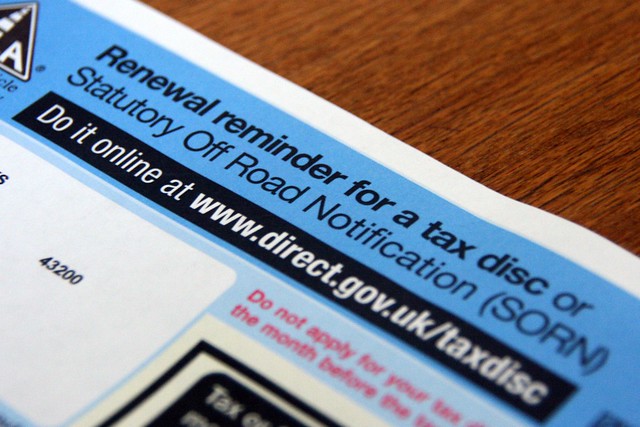Death of the tax disc – hail paperless!
It came as no surprise to me that, following the Chancellor’s Autumn Statement last week, the tax disc is to say goodbye next October after more than 90 years.
While I would like to say that I harbour fond memories of queuing up at the Post Office on the last day of the month before its expiry, or of, in more recent years, hoping that the disc would arrive in time after I left it very late again to pay online, I just won’t. I am a traditionalist at heart but the tax disc has done its job and it is about time it retired. Like so many processes, displaying this paper disc is something we accept because it is something we have always done, regardless of whether it remains fit for purpose.
[quote align=”left” color=”#999999″]Like so many processes, displaying this paper disc is something we accept because it is something we have always done, regardless of whether it remains fit for purpose.[/quote]
It strikes me that we could be seeing the end of all sorts of paper forms and processes. As someone who has been monitoring regular giving and Direct Debit instructions for the not-for-profit sector for well over a decade, I’ve seen a steady rise in online Direct Debit sign-ups. It’s hardly surprising with fundraising increasingly utilising digital tools and channels; with face-to-face agencies switching to mainly electronic forms for the acquisition of new supporters and Direct Debit sign up, while telephone fundraising continues to increase and we see a rise in mobile sign-ups.
None of this should come as a surprise. In our everyday lives, we increasingly rely on email, read books on a Kindle, and are loath to be parted from our tablets and smartphones – there’s now even a name for the fear of being without your mobile, do you suffer from Nomophobia?! We are using the Internet wherever we are on whichever device we have at hand for communication, information and entertainment, as well as buying, selling, and donating, all of which meaning that our everyday use of paper is steadily decreasing.
Convenience of electronic forms
Of course it makes a lot of sense; there is an undeniable convenience to electronic forms (not to mention being kinder to our planet). For the person filling in the form, it negates the need to find a stamp and walk to a post box and there’s no mislaying the piece of paper or finding the time to sit down with a pen; it’s there on screen, where many of us spend a lot of time every day, one click and it’s gone.
For the organisation, it is not only more cost-effective to gather information online than on paper but more accurate thanks to the opportunity it affords to check information at point of entry for errors, eliminating the need to remedy mistakes at cost later with the possible loss of custom, or donation that this incurs.
It is also quicker, which is of great benefit where payments of any kind are involved. Electronic forms enable Direct Debit payments to be processed faster so that all parties benefit from this shorter turnaround. This means that vital first donation can be collected sooner, and the new donor receives a welcome pack with the minimum of delay to maximise engagement.
For charities of all sizes, going ‘paperless’ is easier than it’s ever been before. Much the same as websites were once viewed as luxury items but now everybody has one, so too paperless payments like online Direct Debit or card payments have become an affordable and easily accessible must have. The advantages for charities are clear – reduced costs, faster turnaround, processing efficiencies and potentially easier and more informed ongoing stewardship of regular donors. For supporters the simple convenience enables fast and easy payments across all online devices, whilst providing protected and trusted payment methods.
I am not saying that our love for paper has gone altogether but it should come as no surprise to see it disappear in some areas, just like our humble tax disc.
Scott Gray, Managing Director, Rapidata Services Plc
Photo: tax discs by bartmcguire on Flickr.com
Advertisement




